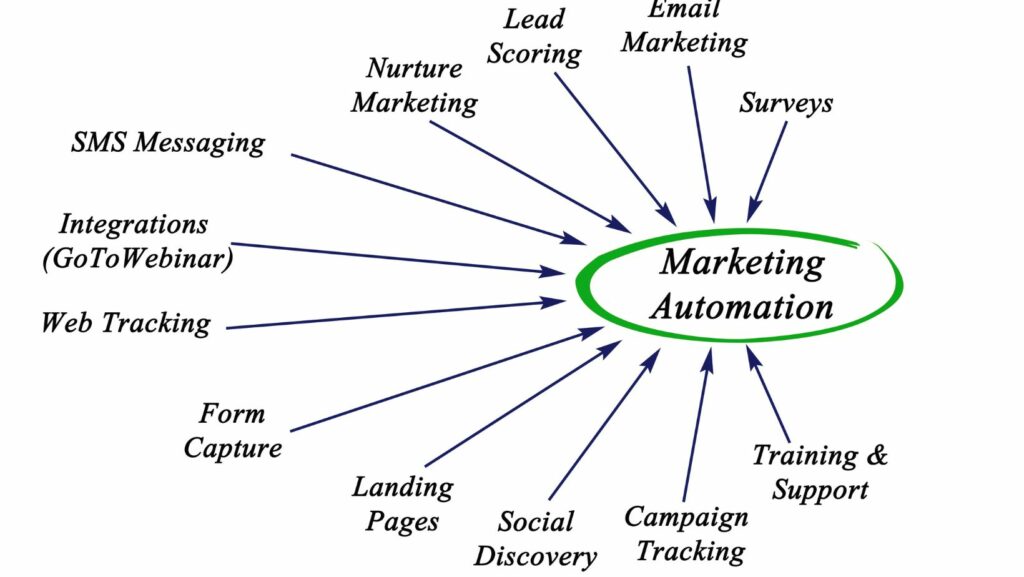Physical Address
304 North Cardinal St.
Dorchester Center, MA 02124

In a world where time is money and cat videos reign supreme, content marketing automation is the superhero every business needs. Imagine effortlessly reaching your audience while sipping coffee and pretending to be productive. With the right tools, marketers can wave goodbye to tedious tasks and focus on crafting messages that resonate.
Content marketing automation refers to using software to streamline and enhance content marketing efforts. This approach enables marketers to execute tasks such as content creation, distribution, and performance analysis automatically. By automating repetitive processes, businesses save time and resources while increasing campaign effectiveness.
Various tools facilitate content marketing automation. For instance, customer relationship management (CRM) systems help manage interactions with customers, ensuring personalized content delivery. Additionally, social media scheduling tools allow businesses to publish posts across multiple platforms at optimal times without manual intervention.
Automation tools can also enhance analytics. Automated reporting systems provide insights into campaign performance, enabling data-driven decisions. This shift toward data reliance helps marketers refine strategies and measure success more accurately.
Integrating automation into content marketing brings significant benefits. It enhances efficiency by reducing manual workload, allowing teams to focus on strategy and creativity. Furthermore, consistent content delivery fosters audience engagement, leading to higher retention rates and brand loyalty.
Ultimately, content marketing automation encourages scalability. As businesses grow, automated systems support increased content volume without compromising quality. Marketers can adapt quickly to changing trends while maintaining effective outreach. Excellent examples of platforms that assist with this include HubSpot, Marketo, and Buffer.

Content marketing automation significantly enhances marketing strategies. It streamlines various processes, allowing businesses to amplify their outreach effectively.
Automation significantly reduces time spent on repetitive tasks. Marketers can schedule content in advance, enabling consistent engagement without the daily hassle of posting. Tasks like audience segmentation and performance tracking become automated, allowing teams to focus on strategic planning and creative content. With tools that handle these processes, marketers experience increased productivity and can allocate resources more effectively. This efficiency not only saves hours but also ensures that time goes toward developing impactful messaging that resonates with audiences.
Enhanced targeting capabilities stem from automation. It allows businesses to analyze audience behaviors and preferences accurately. By using automated systems for data collection, marketers can tailor content specifically for different segments, improving personalization. Such focused approaches increase engagement rates, as audiences receive messages that align with their interests. Automated platforms also enable real-time adjustments based on performance insights, ensuring that marketing efforts remain relevant and effective.
Data-driven insights are a key advantage of content marketing automation. Automated reporting tools provide comprehensive analytics, making it easier to monitor campaign performance. Marketers can quickly identify trends and patterns from these insights, allowing for informed decision-making. Utilizing these reports, they can refine content strategies based on what resonates best with their target audience. This data-centric approach not only boosts ROI but also fosters continuous improvement in marketing executions.
Various tools facilitate content marketing automation, streamlining processes and enhancing efficiency. Below are essential categories of tools that aid marketers in optimizing their content strategies.
Email marketing platforms automate campaigns, deliver personalized content, and manage audience segmentation. Examples include Mailchimp and Campaign Monitor, which allow marketers to schedule emails, analyze open rates, and track engagement metrics. Automation fosters targeted messaging, ensuring recipients receive tailored content based on their preferences and behaviors. These platforms enhance communication and allow businesses to nurture leads effectively.
Social media management tools simplify content scheduling and engagement across multiple platforms. Tools like Hootsuite and Buffer enable marketers to publish posts at optimal times, monitor social interactions, and gather performance analytics. These platforms promote efficiency by consolidating social media activities, allowing teams to focus on strategic initiatives rather than daily postings. Marketers benefit from analytics that identify peak engagement times, which inform future content strategies.
Content management systems (CMS) streamline content creation, management, and distribution. WordPress and Drupal are popular CMS options that provide intuitive editing interfaces and automation features. These systems allow marketers to collaborate on content efficiently, optimize SEO elements, and schedule publication times. Utilizing a CMS ensures that content stays organized and easily accessible, enhancing workflow and improving editorial consistency across various channels.
Implementing content marketing automation requires strategic planning and execution. Businesses can achieve optimal results by focusing on specific goals and audience segmentation.
Clear goals form the foundation of successful content marketing automation. Start by identifying measurable objectives such as increasing website traffic, enhancing lead generation, or improving conversion rates. Establishing benchmarks allows marketers to track progress effectively. For example, aiming for a 20% increase in monthly leads provides a clear target. Align goals with overall business objectives to ensure relevance and impact. Prioritizing strategic goals enables marketers to allocate resources efficiently and maintain focus throughout the automation process.

Audience segmentation allows businesses to tailor content for distinct groups. Begin by analyzing key demographics, preferences, and behaviors. Creating specific segments, such as age groups or purchase history, aids in delivering personalized content. For instance, targeting millennials with trends or promotions resonates more than generalized messaging. Automation tools simplify managing and engaging with different audience segments. Streamlined segmentation fosters a deeper connection, increasing engagement rates and enhancing the overall user experience. Personalization through audience segmentation remains essential for effective content marketing strategies.
Performance metrics provide valuable insights into campaign effectiveness. Regularly analyzing data allows marketers to determine which content performs best. Focus on key performance indicators (KPIs) like open rates, click-through rates, and conversion rates to gauge success. For example, monitoring a 15% open rate indicates audience engagement levels. Automated reporting tools streamline data collection and visualization, making it easier to identify trends. Adjusting strategies based on performance analytics enhances future campaign effectiveness. Continuous performance analysis remains vital for optimizing content marketing automation efforts.
Content marketing automation is transforming how businesses connect with their audiences. By embracing this technology, marketers can streamline their efforts and focus on what truly matters: crafting compelling content that resonates.
The ability to automate tasks not only saves time but also enhances targeting and engagement. With powerful tools at their disposal, marketers can deliver personalized messages that drive results.
As the landscape continues to evolve, adopting automation will be crucial for staying competitive. The right strategies and tools can lead to improved efficiency and greater ROI, making content marketing automation an indispensable element of modern marketing.